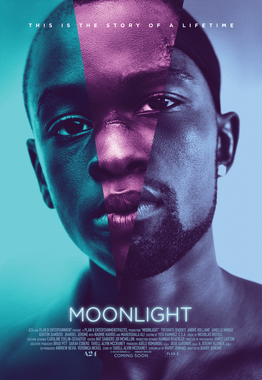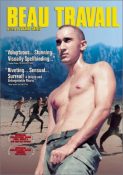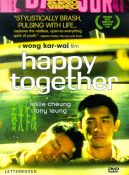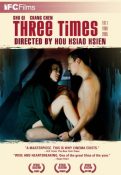I remember when Orange is the New Black made its debut just three short years ago. I was overwhelmed by the opening scene of the show and taken aback that I was tearing up — it’s largely a comedy, so why was I suddenly feeling so overwhelmed with emotion?
The answer it pretty telling. I had never seen that many women featured in one TV show, and not just women, but women of all ages, ethnicities, body types. Real women with real bodies. I got unexpectedly emotional because I realized I’d never seen that before on television.

That memory came to mind recently as I was pondering one of my responsibilities as a librarian in our Music, Film & Audio department. We do our best to make sure that the incredibly diverse variety of patrons who use our resources are represented and that they see themselves in our collection, although we are unfortunately limited by what films are being produced and distributed. Of course, if we’ve missed something that you’d like to see in our collection you are always welcome to make a suggestion here. We listen to you, our users, in order to make our collection better and more representative of the people we serve.
One film I will definitely be adding to our collection in the coming year is Barry Jenkins’ Moonlight. The film has been receiving unanimously positive reviews and just made its way to theaters this past weekend. If you have even a passing interest in independent cinema and supporting new voices and talent, you should absolutely see this film.
So far it’s one of my favorite films this year and will likely stick with me for a long time. It’s not particularly plot heavy, but it is full of arresting visuals, textures and fantastic music. It’s the portrait of one man, Chiron, growing up poor in South Florida. It’s told in three vignettes: Chiron as a child, teen and then mostly full-grown man. He is a sensitive and introverted kid who is often bullied and noticeably different; his home life is difficult.
This makes it sound like a film that traffics in cliches of growing up poor, oppressed and marginalized, but it somehow transcends these tropes to become something much more honest and beautiful. Everyone in this film is fully human and portrayed with dignity. There are no easy redemptive arcs, just lives being lived. It also touches on themes of masculinity and sexuality, particularly of African-American men, but it never felt heavy handed to me and never comes to any definitive conclusions about the “right way” to be in the world. In short, I’m having a hard time saying what exactly this picture is about, but I know I was affected by it and will be seeing it again.
Of course, if you can’t make it to the theater then you can check out Jenkins’ debut feature Medicine for Melancholy, or one of the three films he has mentioned in interviews as directly influencing Moonlight.

Jenkins has shared his love for the films of French director Claire Denis in numerous interviews. Beau Travail is her 1999 film based loosely on Herman Melville’s Billy Budd. The dreamlike, non-linear filmmaking and sparse dialogue is definitely echoed in Jenkins’ film, and he has even stated that, “if there’s any film that’s a one-to-one influence on this film, it would be Beau Travail for sure.”

I’ve never met a Wong Kar-Wai film I didn’t like, so I was excited to hear that his work was an influence, particularly his 1997 movie Happy Together about a Chinese couple living abroad in Argentina. Kar-Wai’s films are almost all visually beautiful, and more about tone and feeling than plot. This film would make an absolutely perfect double feature with Moonlight.

This incredibly beautiful, ethereal Taiwanese film from 2005 has also been cited as a reference, especially to the structure of Jenkins’ film. In interviews he has shared that his film shares the same three-act structure with Three Times, “a triptych.” Three Times tells the story of three romances over nearly 100 years, featuring the same two actors in 1911, 1966 and 2005. The three stories are separate and unique, but speak to each other in subtle and interesting ways. (In this sense it also reminds me of Wong Kar-Wai’s Chungking Express, a film whose two distinct stories are barely connected, but still seem to be speaking to each other about the same themes of love, loss and longing.)
What about you, dear reader? Have you seen a good movie lately that you’d recommend? Are you planning to go see Moonlight?
As always, take good care,
-Tara
Can’t make it to the theater?
Check out Barry Jenkins' Medicine for Melancholy today!Tara is a Librarian in the Music, Film & Audio Department, and loves to make film & book recommendations. Some of her interests include gardening, cookbooks, foreign films, comedy albums and devastating literary fiction.
